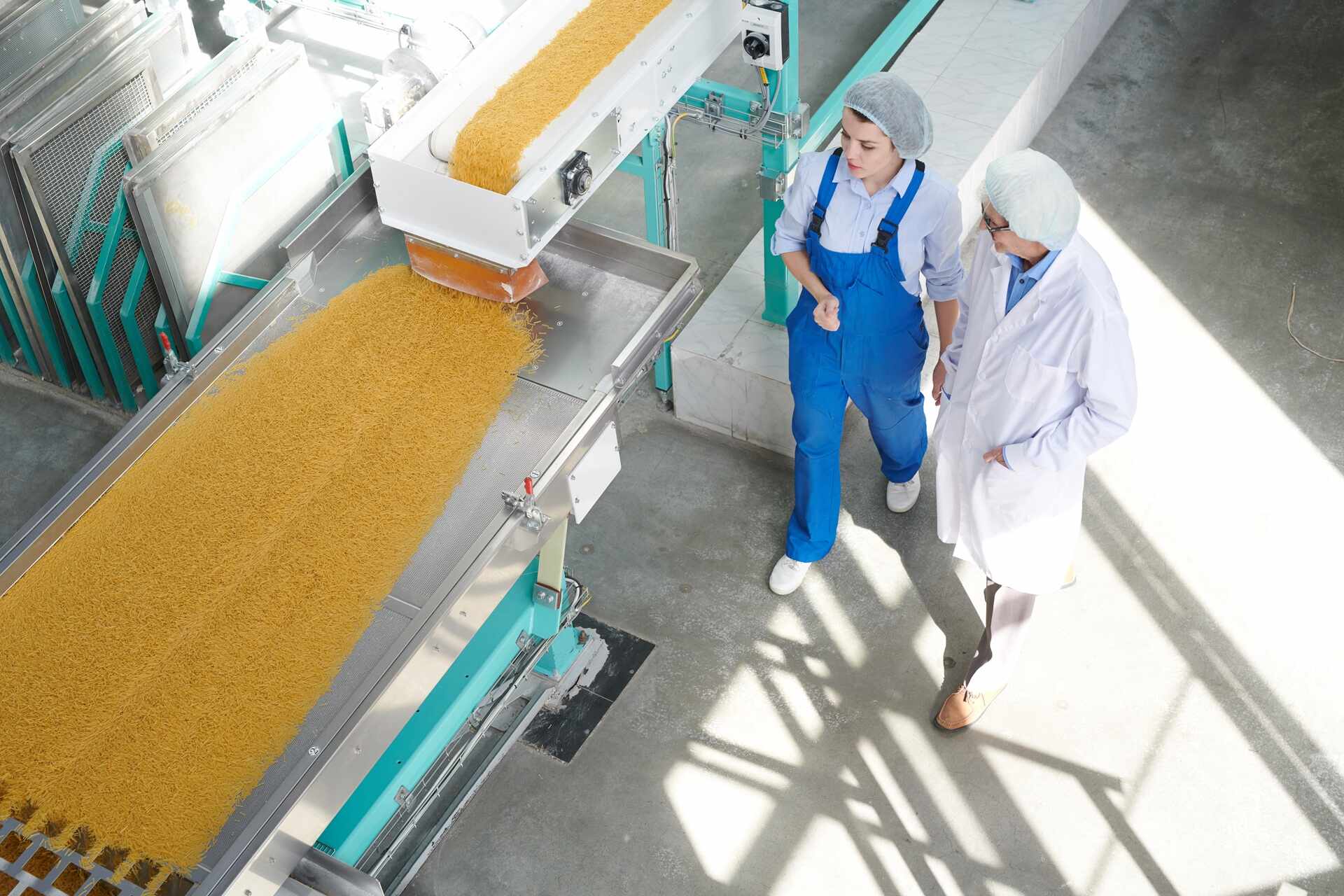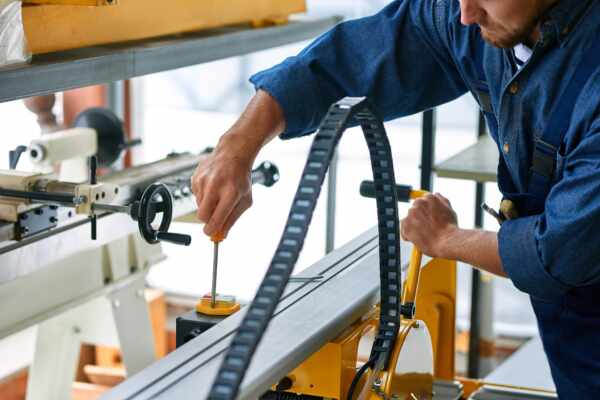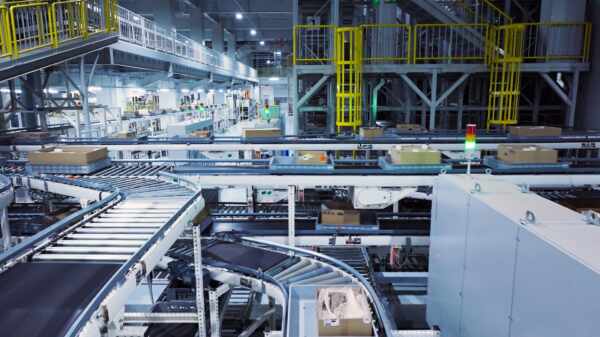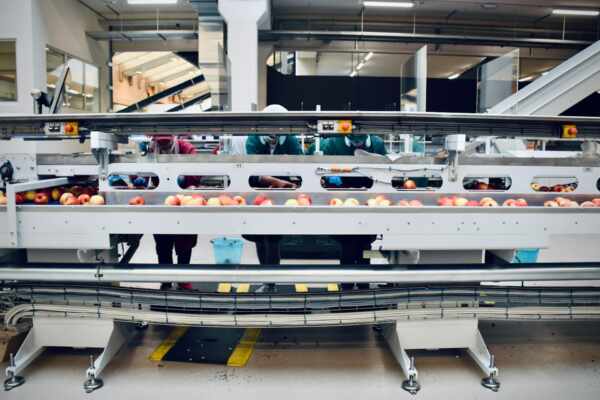Food manufacturing is a complex and highly regulated industry, requiring equipment that meets the highest standards of hygiene, safety, and efficiency. Conveyor belts are an integral part of food processing operations, responsible for the seamless transport, sorting, and packaging of various food products.
Selecting the ideal conveyor belt system for your food manufacturing facility is essential to maintain a hygienic and efficient production line, while also ensuring compliance with food safety regulations.
In this blog post, we will guide you through the process of selecting the most suitable conveyor belt system for your food manufacturing operations, covering the key factors to consider and the different conveyor belt types available. Our focus will be on identifying conveyor belt systems that meet the rigorous hygiene standards necessary in the food industry, provide efficient performance, and can handle the unique demands of food product handling.
When choosing a conveyor belt for your food manufacturing facility, the primary considerations include ease of cleaning, durability, resistance to the growth of harmful bacteria, and the ability to handle various food products safely and efficiently.
Conveyor belts constructed from materials such as stainless steel, plastic modular belts, and fabric belts, each have their own set of advantages that can fulfil the requirements of food manufacturers.
Key Aspects of Selecting a Conveyor Belt for Food Manufacturing
Ease of Cleaning and Maintaining Hygiene
Hygiene is paramount in food manufacturing, making the ease of cleaning and sanitising your conveyor belt system a top priority. Choose a belt that minimises areas where food particles and bacteria can accumulate and that simplifies the cleaning process. Ensuring a sterile environment throughout the manufacturing process is critical in maintaining food quality and safety.
Durability and Resistance to Bacteria
Food manufacturing facilities require conveyor belts that are durable and resistant to bacterial growth. The ideal belt materials should be non-porous, impermeable, and able to withstand the rigours of the manufacturing process. Long-lasting and durable conveyor belts can save you time, money, and reduce the risk of product contamination.
Handling Different Food Products Safely and Efficiently
Food manufacturers often process a diverse range of products with varying physical properties. Select a versatile conveyor belt system that can cater to this diversity, handling various food types without causing damage, alterations in taste or texture, and maintaining the highest levels of food safety.
Types of Conveyor Belts for Food Manufacturing
Stainless Steel Belts
Stainless steel belts are popular in food manufacturing facilities for their durability, hygiene, and resistance to bacterial growth. They are easy to clean and sanitise and can effectively transport a range of food types.
Pros:
- Exceptional durability and resistance to corrosion
- Easy to clean and maintain
- Resistance to bacterial growth
Cons:
- Higher upfront cost
- May be less suitable for delicate food products
Plastic Modular Belts
Plastic modular belts are versatile, lightweight, and easy to clean, making them an ideal choice for food manufacturing facilities. They provide flexibility in configuration and a gentle handling capability, suitable for delicate food products.
Pros:
- Customisable and flexible design to suit specific production needs
- Hygienic and easy to clean
- Gentle handling suitable for delicate food products
Cons:
- Less durable than stainless steel belts
- May require more frequent maintenance
Fabric Belts
Fabric conveyor belts, constructed from materials such as polyester and polyurethane, are often used in food manufacturing due to their versatility and customisable properties. These belts can be coated with an antimicrobial agent, ensuring high levels of hygiene.
Pros:
- Customisable and adaptable
- Antimicrobial coating options available
- Suitable for handling a wide range of food types
Cons:
- Less durable than stainless steel and plastic modular belts
- May require additional effort for cleaning and maintenance
Implementing and Maintaining a Food-Grade Conveyor Belt System
Effective Implementation and Integration
Once you have chosen the ideal conveyor belt system for your food manufacturing facility, careful planning and implementation are essential for success. Work with experienced professionals to ensure proper installation, integration, and optimisation of your conveyor belt system, maximising its efficiency and making certain it aligns perfectly with your manufacturing processes.
Regular Maintenance for a Hygienic Production Line
Establish a regular maintenance schedule for your food-grade conveyor belt system, allowing for periodic cleaning, inspections, and repairs. Maintaining your conveyor belt in pristine condition is crucial for preserving hygiene standards and ensuring the ongoing safety of food products.
Compliance with Food Safety Regulations
Food manufacturing facilities are governed by strict food safety regulations, such as those enforced by the Australia New Zealand Food Standards Code and the National Measurement Institute. It is critical to select a conveyor belt system that complies with these regulations, and to engage in ongoing diligence to maintain your adherence to these guidelines.
The Importance of the Right Conveyor Belt System in Food Manufacturing
Selecting the ideal conveyor belt for your food manufacturing operations can significantly impact efficiency, hygiene, and food safety. By carefully considering factors such as ease of cleaning, durability, and handling capabilities, you can make an informed decision that will positively influence your food production processes.
Having a thorough understanding of the various conveyor belt types and their benefits, as well as planning and implementing your chosen conveyor belt effectively, can maximise your efficiency, hygiene, and compliance with regulatory requirements.
Take the time to consider your food manufacturing facility’s unique needs and choose a conveyor belt system that will elevate your production processes, streamline operations, and ensure the highest standards of food safety and quality. The results will speak for themselves in the form of increased productivity and a sterling reputation for delivering top-quality food products.
Are you ready to streamline your production process and increase your bottom line? Let our conveyor belt experts help you find the perfect solution for your business needs. Contact Change Parts Pty Ltd today for a consultation and discover the benefits of our innovative material handling systems. Don’t wait, start optimizing your operations now with our industry-leading conveyor belts!




